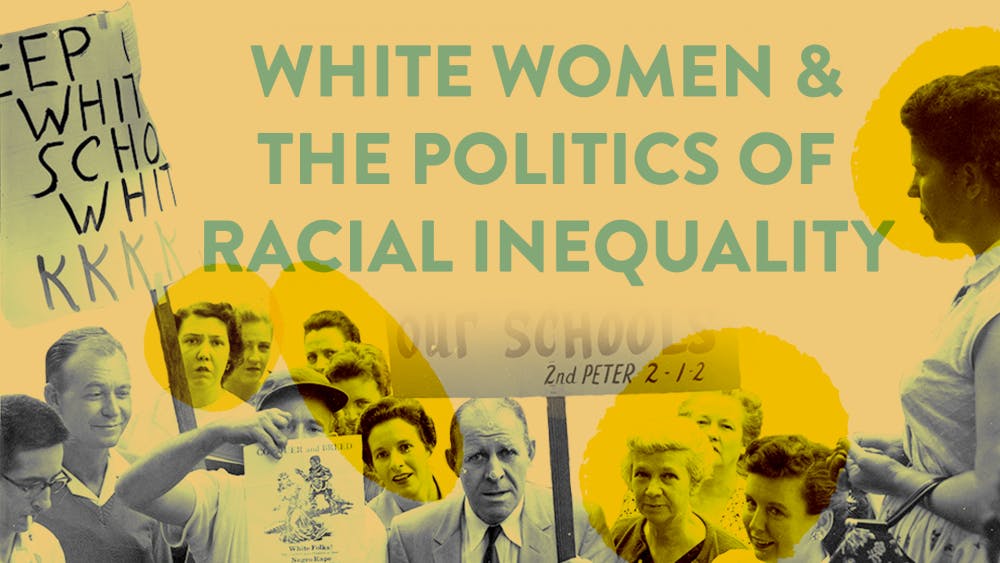With Silent Sam down and midterm elections coming up, The Center for the Study of the American South at UNC decided it was crucial to have a discussion about white supremacy as more than just a white, masculine topic.
The Center will be hosting “White Women and the Politics of Racial Inequality” at the Chapel Hill Public Library on Oct. 24 from 7 to 9 p.m.
In partnership with the Carolina Women's Center and the UNC Departments of History and Women's and Gender Studies, the center will bring Elizabeth Gillespie McRae, associate professor of history at Western Carolina University, to discuss how white women played an important role in the crafting of white supremacist politics.
McRae examined this grassroots phenomenon in her new book, “Mothers of Massive Resistance,” and how white conservative women in the South-influenced American politics from the 1920s to the 1970s. She will be interviewed by Katherine Mellen Charron, associate professor of history at North Carolina State University.
Brianna Sikorski, public communications specialist at The Center for the Study of the American South, said the center’s role is to continue to help bring history and education into these topics for more detailed, educated conversations about them.
She said there has been a lot of attention toward white supremacy as a topic in general, but particularly as a masculine topic since the Unite the Right rally in Charlottesville, Va., which she said leaves out how white women have historically contributed to racism and segregation.
“Coming from a place of intersectionality, we felt that discussing the historical role of white women in furthering the white supremacist movement was a blind spot in a lot of our conversations, and was leaving out a very necessary component for understanding the cultural moment that we're at now," Sikorski said.
Sikorski said the role of white women in maintaining white supremacy became a topic of heightened discussion on UNC’s campus after the forcible removal of Silent Sam.
She said recognizing white women’s role in the enshrinement of white supremacist politics is important in thinking about solutions to historical racism moving forward.



